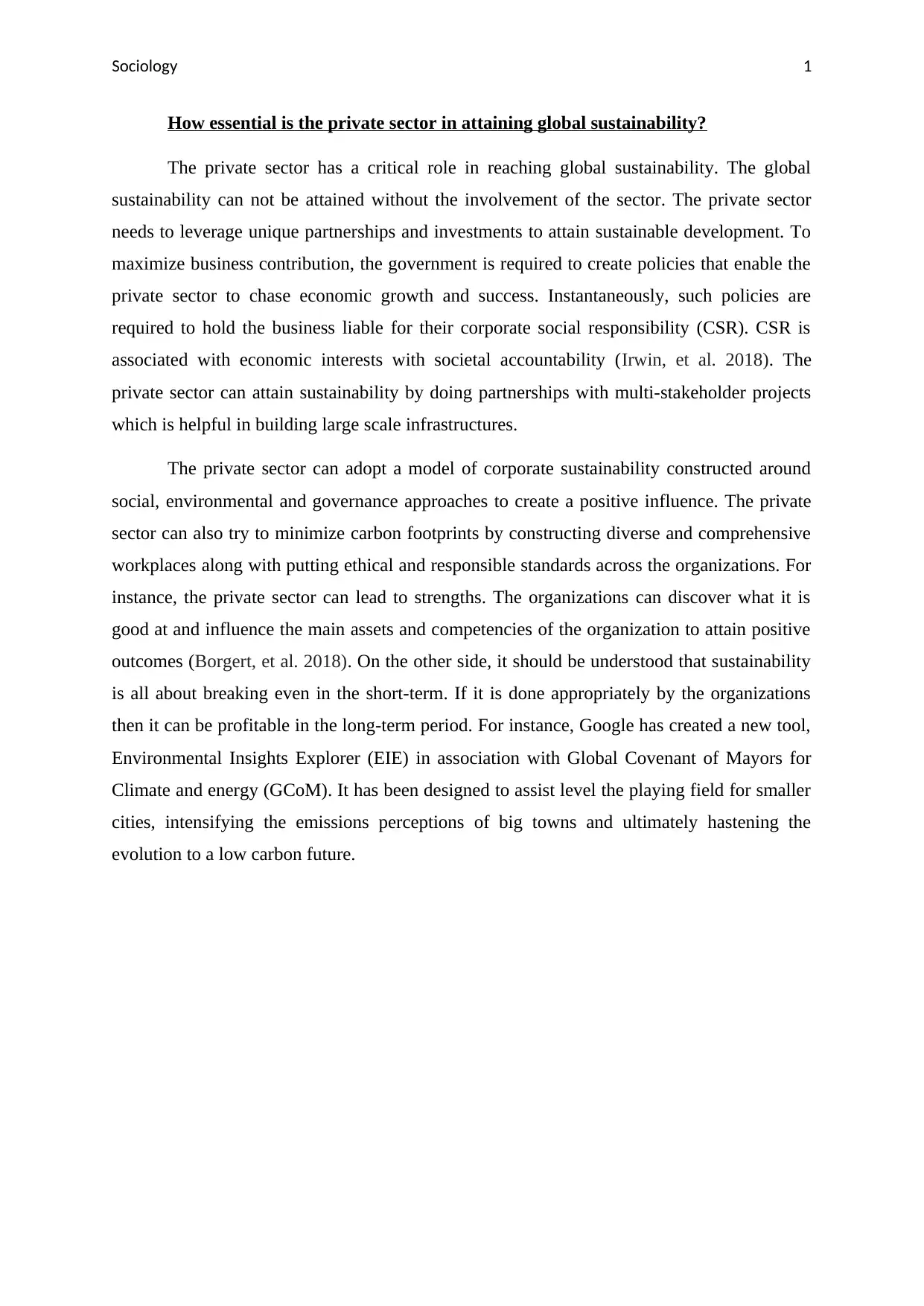The Private Sector's Contribution to Global Sustainability: A Report
VerifiedAdded on 2022/09/15
|3
|427
|18
Report
AI Summary
This report delves into the crucial role of the private sector in achieving global sustainability. It highlights the importance of leveraging partnerships, investments, and corporate social responsibility (CSR) to promote sustainable development. The report emphasizes the need for businesses to adopt ethical and responsible practices, such as minimizing carbon footprints and creating diverse workplaces. The report also references the Google Environmental Insights Explorer (EIE) as an example of how the private sector can contribute to a low-carbon future. By focusing on both short-term profitability and long-term sustainability, the private sector can significantly impact global environmental and societal well-being. The report also underscores the necessity for government policies that support private sector initiatives while ensuring corporate accountability.
1 out of 3








![[object Object]](/_next/static/media/star-bottom.7253800d.svg)